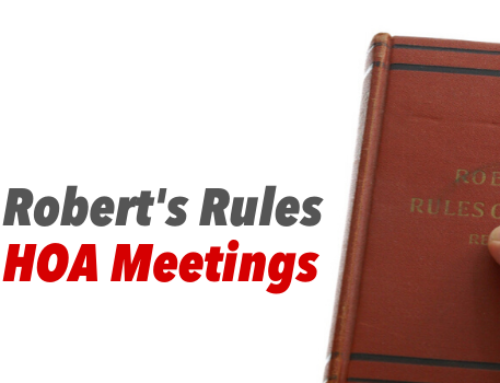Is There a Failure to Communicate Between Your HOA Board and Management Company?
When you contract with an HOA property management company, you expect two-way communication and prompt service. After all, it’s not unreasonable to expect to think that your management company would be just as concerned about your community as you are, right?
Whether it’s a failure to respond, providing ambiguous or unsatisfactory answers, poor response times, or failure to provide any real guidance or advice, boards report their main dissatisfaction with HOA management companies stems from a general lack of communication.
In fact, failure to communicate typically ranks as the number one reason that boards are dissatisfied with their HOA management company!
Why is My Management Company Failing to Communicate?
So, why do so many boards find that their management company is unresponsive or low-performing? Let’s take a look at the top three reasons for lack of communication on the part of an HOA management company:
- Community Manager Overload
Many HOA management companies assign multiple community portfolios to just one community manager, which causes them to be stretched too thin. This, in turn, results in a slower response time, and, let’s face it, the community manager may sometimes drop the ball while trying to juggle too much. When work piles up due to the community manager trying to manage more properties than they can adequately handle, frustrations mount for all involved. Typically, this happens when 10 or more properties are assigned to one individual community manager’s portfolio. Administrative and accounting requests are typically the first things to fall through the cracks, causing the board to feel that their community manager is not proactive. In reality, the community manager is just trying to survive and is likely very aware of the mounting pressure.
- Improper Staffing
Poor customer service occurs when departments, such as bookkeeping or access, get bogged down. This happens a lot during special times of the year, such as tax season or the opening of pool season during the late spring months. Many times, inadequate staffing is caused by improper internal management and failure to plan ahead. For example, if a management company decides to take on additional clients but fails to add staff to their homeowner services department’s call center, wait times will increase as homeowner satisfaction decreases. Running an HOA management company requires a structured organizational system that readily recognizes the need for proper staffing across various departments. Proactive planning is required in anticipation of increased call times, special seasons, the acquisition of new community portfolios, etc.
- Inadequate Systems
Gone are the days of notebooks and spreadsheets! In order to successfully manage their business practices in today’s competitive and technologically advanced world, HOA management companies must have state-of-the-art software specific to the industry. This includes everything from phone systems to apps to accounting software, cybersecurity, and more! Of course, these types of specialized software come at a great financial cost to the company, and some HOA management companies may not have those kinds of funds available. When an HOA management company is unable to compete with today’s technological demands, all internal systems fail to operate as smoothly or as quickly as some competitors, and homeowner satisfaction declines.
The Board’s Role
While there’s not much you can do about an HOA management company’s staffing, structure, and finances, there are a few simple questions you can ask yourself when reflecting on the overall communication and value provided by your management company.
While it may be a tad uncomfortable to engage in this kind of reflection, it could be valuable to consider the following:
- Has the board been very clear about its expectations? It’s important that your community manager (and the management company they’re employed with) understands the particular needs of the community and that the HOA board has expressed expectations clearly in a professional and friendly manner. Building a partnership through trust and respect will go a long way in achieving the goals for your association. When both parties are on the same page, there’s no limit to what can be accomplished!
- Is there anything you can do to assist your community manager? Have you assigned too many small tasks to your community manager, which could easily be handled by the board or are more aligned to a particular board member’s skill set? Is your community manager cooperative and agreeable? Have you spoken with your community manager about your concerns and worked with them to construct a plan for improvement?
- Do you have a system of contact in place? Is there a channel of communication available between the board and the community manager? Are meetings meaningful and only held when necessary? Who is the main board member’s point of contact, and is that person adhering to the expected response time that they hold the community manager accountable for? Is there a cordial and professional relationship that has developed between the board and the community manager? Remember, communication is a two-way street!
- Is the board actually encouraging communication? Is there a suggestion box for homeowners to voice concerns, ideas, or complaints? Does the board meet with their community manager to discuss these comments? Are you sure the community manager knows what the issues are? Is the board piling too much on the community manager or, perhaps, failing to delegate?
While your board may be disappointed or dissatisfied with how your current HOA management company has performed, always remember that successful communication takes the time and effort of both parties. Before you decide to part ways with your HOA management company, be sure you’ve considered every possible angle and asked yourself these important questions. Is there anything the board can do to reframe the relationship and turn things around? Are you willing to try? If the answer is a resounding “No!”, then check out our article on How to Switch Your HOA Management Company.
Related: Be a better HOA Board Member to avoid Miscommunication. Check out our free Webinar.






